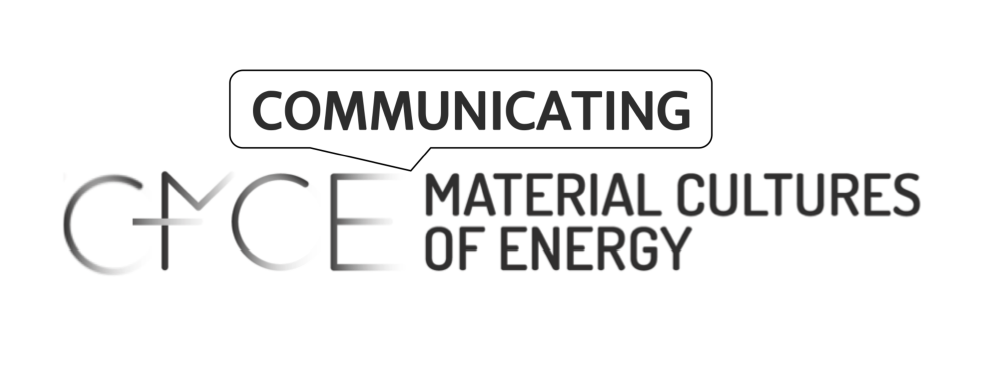Energy and Public Communication Conference

Conference
Energy and Public Communication
24–25 July 2019
Science and Industry Museum, Manchester, UK
Funded by the Arts and Humanities Research Council as part of the ‘Communicating Material Cultures of Energy’ project
Organisers:
Hiroki Shin (Science Museum / Birkbeck College)
Heather Chappells (University of British Columbia)
Keynote Speakers
Mark Atherton (Director of Environment for Greater Manchester)
Brian Cozen (Assistant Professor, California State University, Fresno)
Date and Venue:
24–25 July, the Science and Industry Museum, Manchester
Energy is a topic that encompasses challenges and opportunities of tremendous scale and consequences. Environmental problems loom large in global discussions among energy experts and in public debate, with the Paris Agreement to tackle climate change facing the challenge of implementation and international policy alignment, especially with regards to the use of fossil fuels. Changing the impact of our energy consumption through decarbonisation and a transition to renewable energy is crucial for overcoming the climate crisis, but achieving behavioural change is a highly complex and difficult process.
The energy landscape in the UK is undeniably changing. There has been a surge in renewable energy use, while an increasing proportion of the energy provision business is being decentralised. Technological developments such as smart grids, smart meters and electric vehicles are transforming the ways energy users consume resources and understand the ramifications of their consumption habits. Yet, technology is just one among many factors that bring about an energy transition. Change requires synchronised adjustments to energy supply and demand and the latter is dependent on modifying consumers’ behaviours, attitudes and beliefs. As energy consumption incorporates practices that are shaped by knowledge and information available to users, communication plays a significant part in influencing social change. Communication is also crucial to enable energy users to make informed decisions on broader social and environmental concerns related to energy policy and provision at local, national and global scales. Improvements in energy-related communication are vital in facilitating transition to a sustainable energy path.
This ‘Energy and Public Communication’ conference forms an integral part of the AHRC-funded project ‘Communicating Material Cultures of Energy’ (CMCE), a public-engagement project based on the research project ‘Material Cultures of Energy’ conducted between 2014 and 2017 (www.bbc.ac.uk/mce). The CMCE project aims to highlight the importance of energy-related public communication in setting a course for a sustainable energy future. Despite being a major part of energy company business strategies, energy communication has largely been regarded as secondary to core concerns of energy supply and demand management. Communication expertise is currently fragmented across many different organisations and institutions, and there is limited interaction among energy communicators representing diverse bodies and groups. The project activities of CMCE, which commenced in October 2018, are intended to facilitate and stimulate a cross-fertilisation of expertise and knowledge concerning energy communication by fostering a dialogue among communication experts representing energy providers, government agencies, community energy groups, cultural institutions and research organisations. The project aims to contribute to an overall improvement in practices of energy communication through creating a foundation for sustained knowledge exchange and collaborative innovation.
Following on from a series of CMCE knowledge exchange events, the conference is expected to open up and extend dialogue about effective public communication among energy practitioners and researchers. The aim is to reach a broader community of stakeholders involved in energy communication with consumers. It will provide an opportunity for mutual learning, multidisciplinary discussion and networking for communicators across different energy-related sectors and disciplines. The two-day conference will incorporate presentations, panel discussions, keynote talks and film viewing sessions. Speakers as diverse as marketing professionals, museum curators, campaigners, community energy providers and researchers will share their experiences and insights with a view to enhancing understanding of how to effectively engage the public in energy-related issues. Papers will present past and recent cases of public campaigns, including critical evaluation of traditional and emerging technologies or techniques for energy communication. A panel discussion will address the role of communicators in the current energy transition as well as future directions for collaboration across energy-related sectors.
The conference venue is the Science and Industry Museum in Manchester. Manchester is an ideal location for discussing the past and future of energy communication, given its historical legacy as a heartland of energy industry and its key role in leading new energy trends, such as the community energy movement. The Science and Industry Museum has been at the forefront of energy communication in the UK with its substantial collection of objects and records related to the electricity and gas industries regularly being featured in the museum’s permanent and temporary exhibitions. The ‘Electricity: The Spark of Life’ exhibition held between October 2018 and March 2019, offers just one example of how the museum has supported public engagement endeavours.





